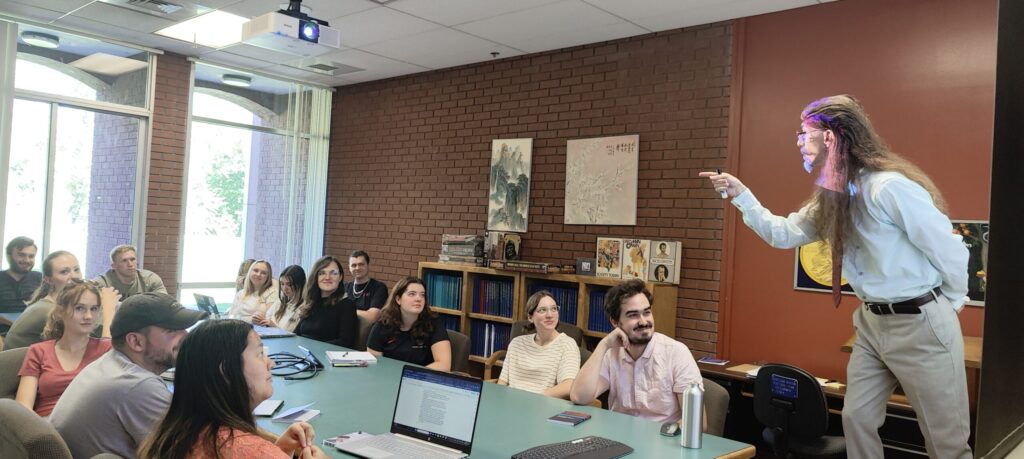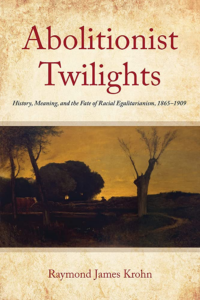Specializations
Long American Nineteenth Century
Education
Ph.D., Purdue University
M.A., Youngstown State University
B.A., John Carroll University
I received my Ph.D., in history, from Purdue University (2010), where I focused on the nineteenth-century United States and worked closely with such period specialists as Robert E. May, Michael A. Morrison, and John L. Larson. I additionally studied under Frederick J. Blue while completing an M.A. at Youngstown State University.
As a member of the Department of History at Boise State, which I joined in 2012, I provide a variety of introductory surveys, advanced seminars, and interdisciplinary workshops. My teaching and research interests encompass the 18th, 19th, and early 20th centuries, specifically the histories of slavery, abolitionism, and social reform movements, as well as constitutional, political, intellectual, and cultural history.

Dr. Krohn in action here at BSU
As an educator, my overriding goal is to convey the complexity of history, the variety of past experiences, and the multiple, intricate, and contingent origins and outcomes of historical events and developments. Besides engaging and unpacking the “whats,” “hows,” and “whys” of the past, on their own terms and for their own sake, I am a present-minded instructor, too. That is, I would like for students to acquire an understanding, not only of how the past shapes the present, but also of the persisting presence of deceptively distant pasts. By telling and talking about historical stories, my hope is that students will fully appreciate the extent to which the past itself and the study of the past are vibrant, dynamic, and ever-relevant.
My first book, Abolitionist Twilights: History, Meaning, and the Fate of Racial Egalitarianism, 1865-1900, broadly considers what tales past historians told and why. It specifically concentrates on the memorial and historical writings that veteran abolitionists published in the years and decades following slavery’s eradication in the United States. In so doing, it maps the humanitarian commitments of antislavery chroniclers and commemorators during turning-points moments in American race relations from the Era of Emancipation to the Age of Jim Crow.
My current book project, Faith and Works: Harriet Beecher Stowe and the Problem of Slavery, explores the ways in which an influential storyteller deployed fictional writings in order to contest a race-based system of slavery in the United States. It particularly interrogates how Stowe’s literary ministry of the 1850s fits within a larger Chrisitian tradition of thought about martyrdom, enslavement, and salvation.
Contact
Office: L188
Phone: (208) 426-4630
raymondkrohn@boisestate.edu
Spring 2025 Office Hours:
Tue/Thurs: 1:30 – 3:30 pm
And by Appt
Teaching
The Historical Craft
Themes in World History
United States History I
Framing the United States, 1776-1800
Jacksonian America, 1800-1850
The Civil War Era
Race, Rights, and Reconstruction
Modernity & the Art of War
The Modern Art of Imperialism
Graduate Students
Selected Scholarship

Abolitionist Twilights: History, Meaning, and the Fate of Racial Egalitarianism, 1865-1909 (forthcoming, Fordham University Press).